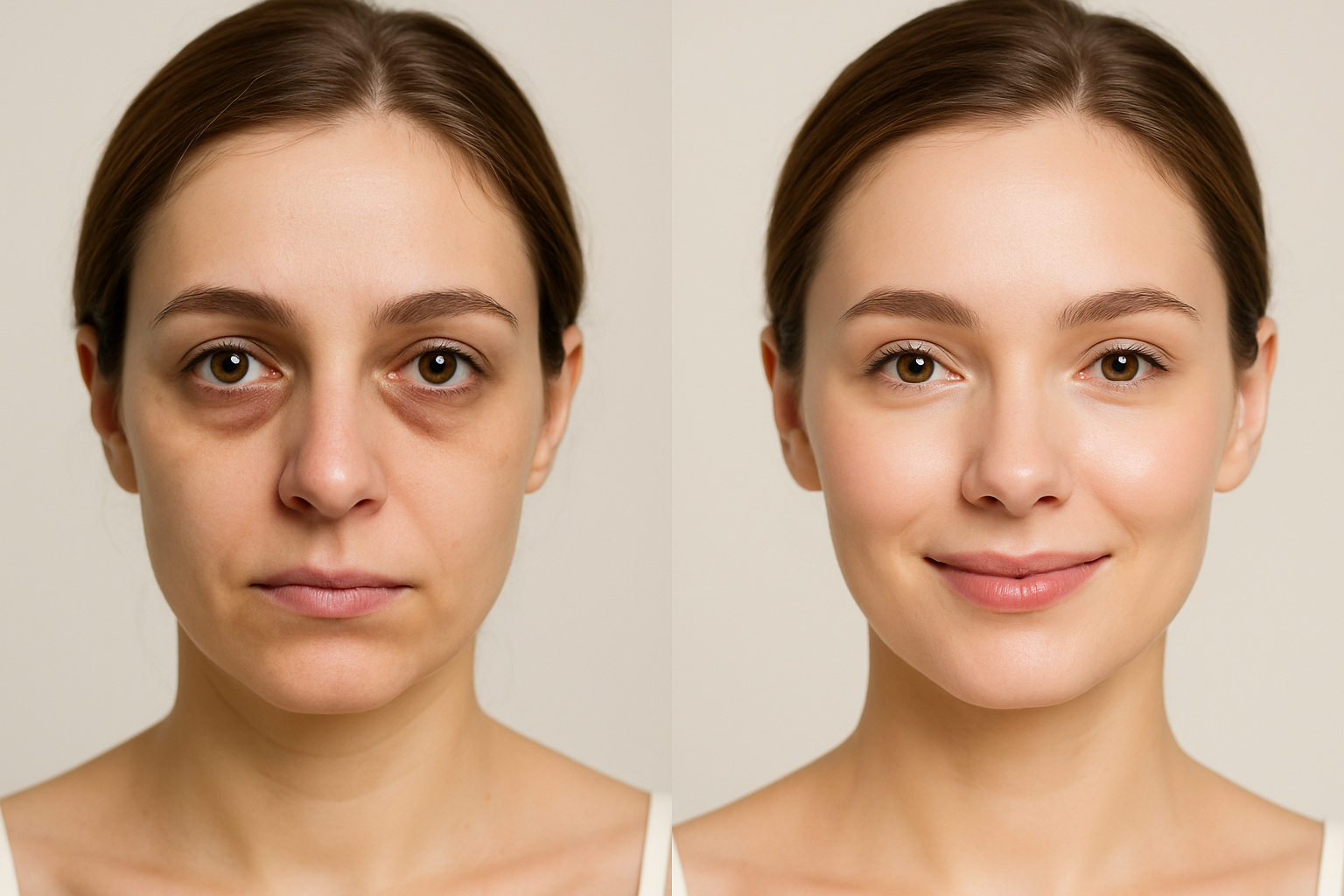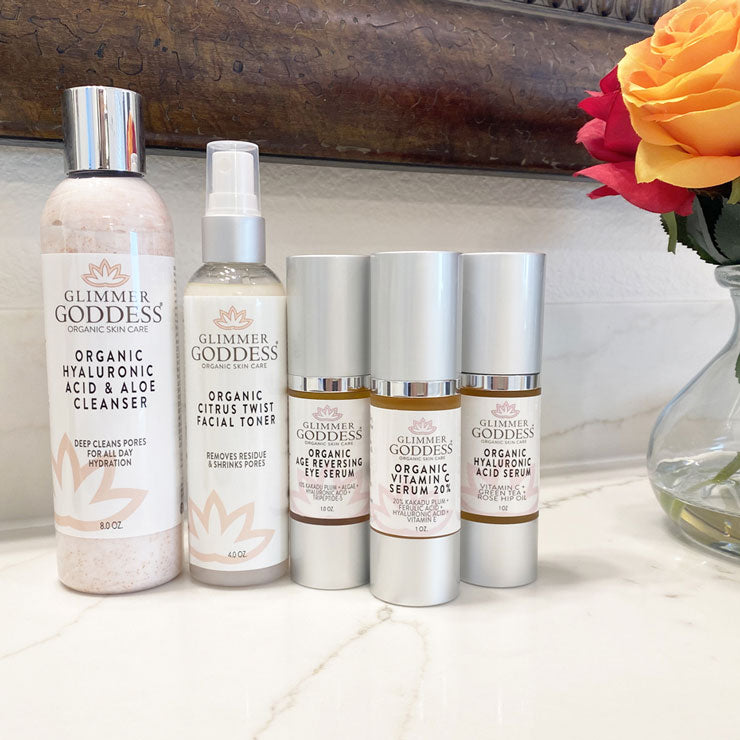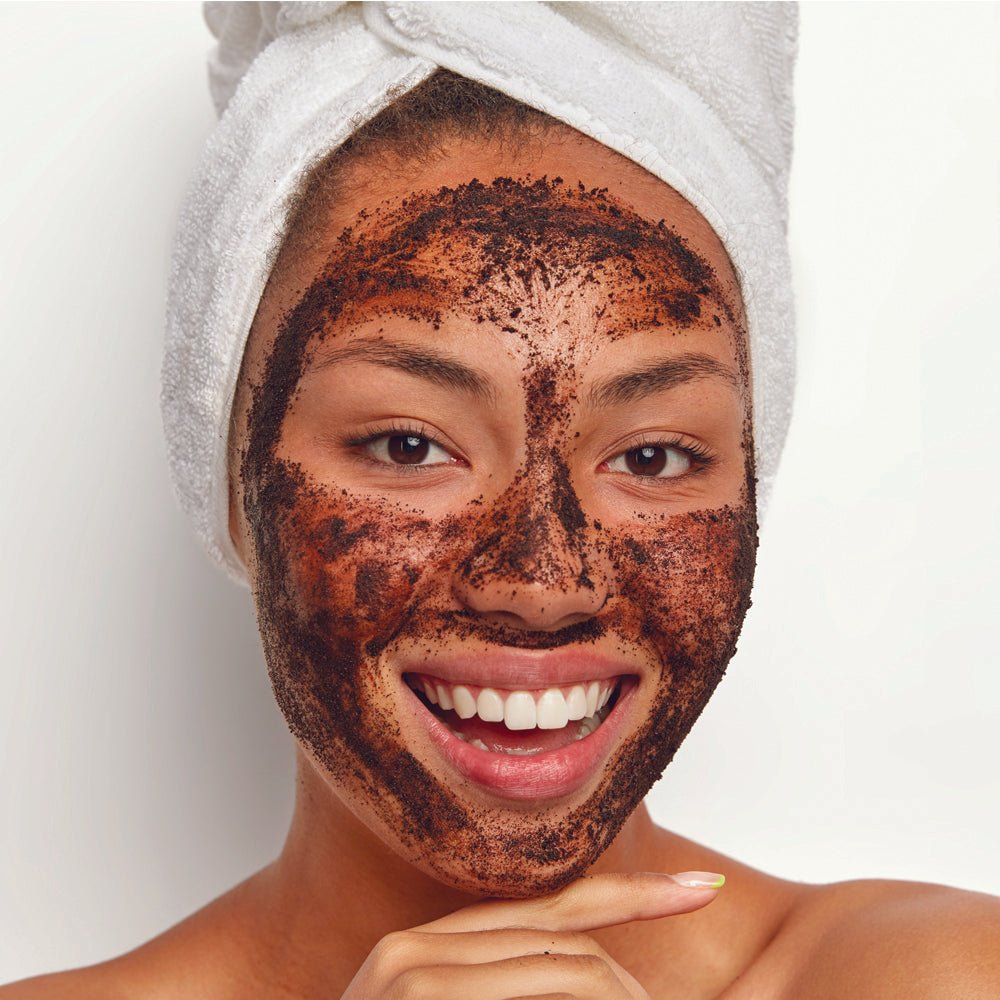
Organic Vitamin C Eye Serum For Dark Circles — Guide
How an Organic Vitamin C Eye Serum Helps Dark Circles, Puffiness & Tired Eyes
If you’re tired of dark circles, puffiness, or dull under-eye skin, a targeted Vitamin C eye serum can help brighten and rejuvenate the delicate eye area. This guide answers common questions shoppers search for — from how these serums work to how to use them safely, and how they compare to popular alternatives.
What is a Vitamin C eye serum and how does it work?
A Vitamin C eye serum is a concentrated treatment formulated specifically for the thin skin around the eyes. Vitamin C (ascorbic acid or stabilized derivatives) is an antioxidant that helps lighten pigmentation, boost collagen production, and protect against environmental damage. When combined with supportive ingredients like peptides, hyaluronic acid, and calming botanicals, it targets dark circles, fine lines, and puffiness without the heaviness of a traditional eye cream.
Key benefits
- Brightens discolored or pigmented under-eye skin.
- Stimulates collagen to reduce the look of fine lines.
- Reduces oxidative stress and environmental damage.
- Hydrates and plumps with humectants like hyaluronic acid.
- Soothes when formulated with calming botanicals for sensitive skin.
How to use a Vitamin C eye serum (best practice)
- Patch test first: apply a small amount behind the ear or on the inner wrist and wait 24 hours.
- Use 1–2 drops per eye: tap gently with ring finger along orbital bone—avoid getting product into the eye.
- Frequency: start once daily (evening or morning). If tolerated, move to morning + evening or at least morning with sunscreen.
- Sunscreen: always use SPF in your morning routine; Vitamin C and sunscreen work synergistically to protect against UV damage.
- Layering: apply under your moisturizer or a lightweight eye cream. Avoid mixing with strong acids or high-strength retinol directly on the same application to minimize irritation.
Is Vitamin C eye serum safe for sensitive skin?
Many formulations are designed for sensitive skin by using stabilized Vitamin C derivatives (like magnesium ascorbyl phosphate or sodium ascorbyl phosphate), lower concentrations, and soothing ingredients such as aloe, chamomile, or oat extract. If you have sensitive eyes or skin, choose serums labeled gentle or suitable for sensitive skin and always patch test first.
Common search questions and quick answers
vitamin c eye serum uk — where can I buy one?
In the UK you can find Vitamin C eye serums at major retailers, pharmacies, beauty stores, and online marketplaces. Check official brand websites, well-known beauty retailers, or ethical beauty boutiques if you prefer organic and cruelty-free options.
dr rashel vitamin c eye serum review — are popular budget options effective?
Budget-friendly options can offer visible brightening if they contain effective Vitamin C derivatives and supportive hydrating ingredients. However, potency, formulation stability, and ingredient quality vary—so read ingredient lists and user reviews. For long-term skin health, higher-quality organic and properly stabilized formulations often perform better.
How does a Vitamin C eye serum compare to Perricone MD brightening eye cream or Blue Plasma?
Brands like Perricone MD have premium formulations with signature technologies and actives. Comparisons will depend on concentration, delivery systems, and additional actives (peptides, niacinamide, or neuropeptides). Perricone MD Brightening Eye Cream and Blue Plasma target multiple concerns and may be pricier; however, a well-formulated organic Vitamin C eye serum can be a gentler, clean alternative focused on brightening and antioxidant protection.
How long before I see results?
Many people notice improved hydration and brightness within 2–4 weeks, while pigmentation and collagen-related improvements may take 6–12 weeks. Consistency, SPF use, and overall skin health play big roles in outcomes.
Ingredients to look for (and avoid)
- Look for: stabilized Vitamin C (or well-formulated L-ascorbic acid with appropriate pH), peptides, hyaluronic acid, niacinamide, antioxidants (vitamin E, ferulic acid), soothing botanicals.
- Avoid or be cautious with: high-strength acids or strong retinoids applied at the same time around the eye, fragrances, and alcohol denat which can be drying or irritating to the delicate eye area.
Tips to maximize results
- Be consistent—apply daily as directed.
- Use sunscreen every morning to lock in benefits and prevent further pigmentation.
- Combine with good sleep, hydration, and a healthy diet for best under-eye improvements.
- If you have persistent or severe dark circles, consult a dermatologist—sometimes genetics, vascular issues, or allergies are contributors.
Quick comparison: organic Vitamin C eye serum vs. some well-known treatments
- Organic Vitamin C eye serum: clean ingredients, antioxidant protection, gentle brightening—great for sensitive skin types.
- Perricone MD products: often high-tech actives and stronger multi-action formulas—effective but pricier.
- Drugstore brands: accessible and budget-friendly; effectiveness varies widely by formulation and active concentrations.
Recommendation
If you want an all-natural, cruelty-free option that focuses on brightening, hydration, and gentle rejuvenation for delicate under-eye skin, consider trying
and follow the usage tips above for the best results.
Final thoughts
Vitamin C eye serums are a valuable addition to a targeted eye routine—especially when formulated to be gentle and supportive. Choose a stable formulation, patch test if you’re sensitive, pair with SPF, and be patient: consistent use will give you the best chance to reduce dark circles and reveal a fresher, more luminous eye area.










